Where We Started: A Brief History of M State
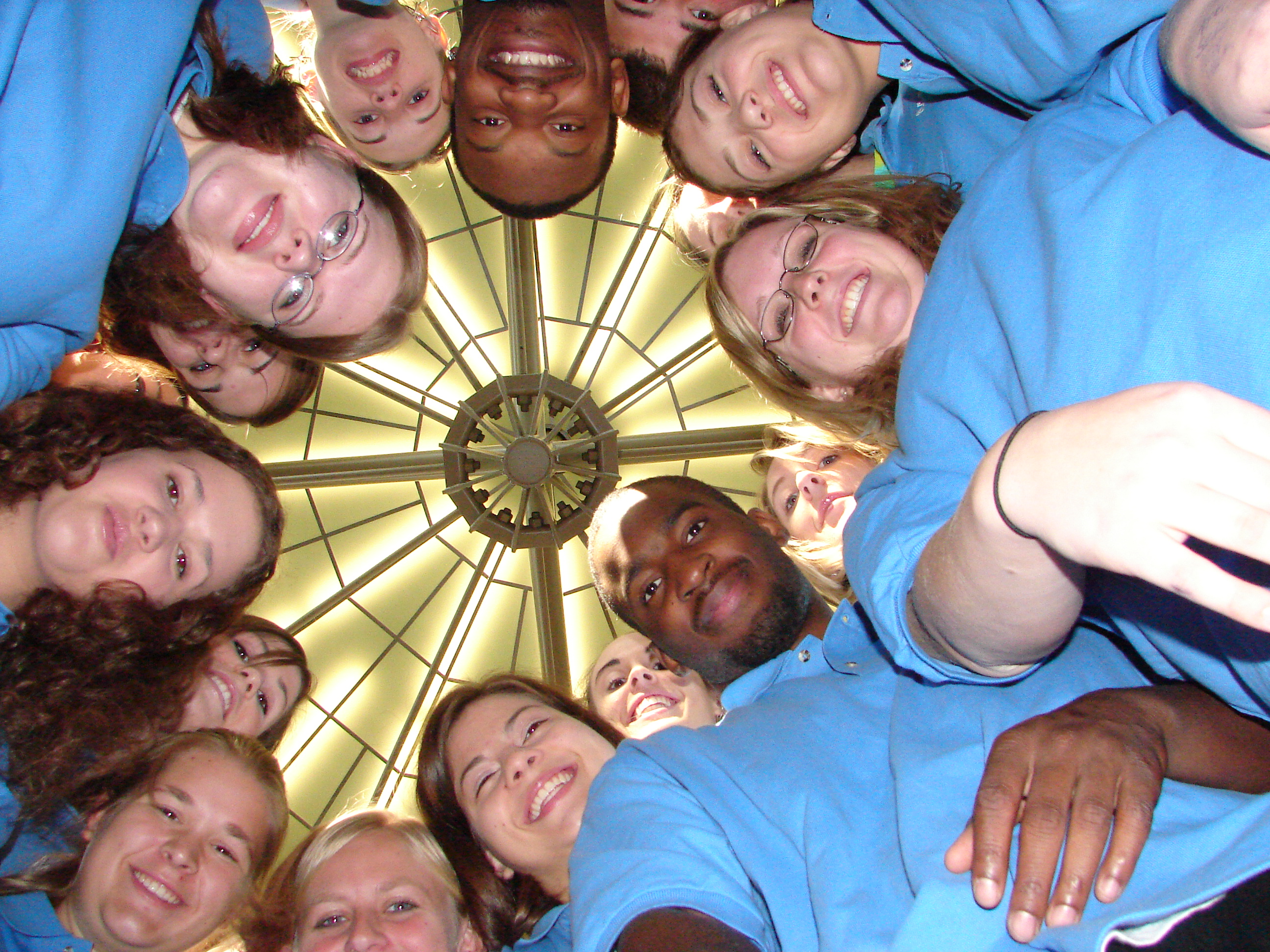
How M State started, and how far we've come
In 2003, in celebration of the merger that brought Minnesota State Community and Technical College to life, each of M State’s four campuses held public “Meet Your New College” events, where a new logo was unveiled and community members had the opportunity to meet and visit with their new campus provosts.
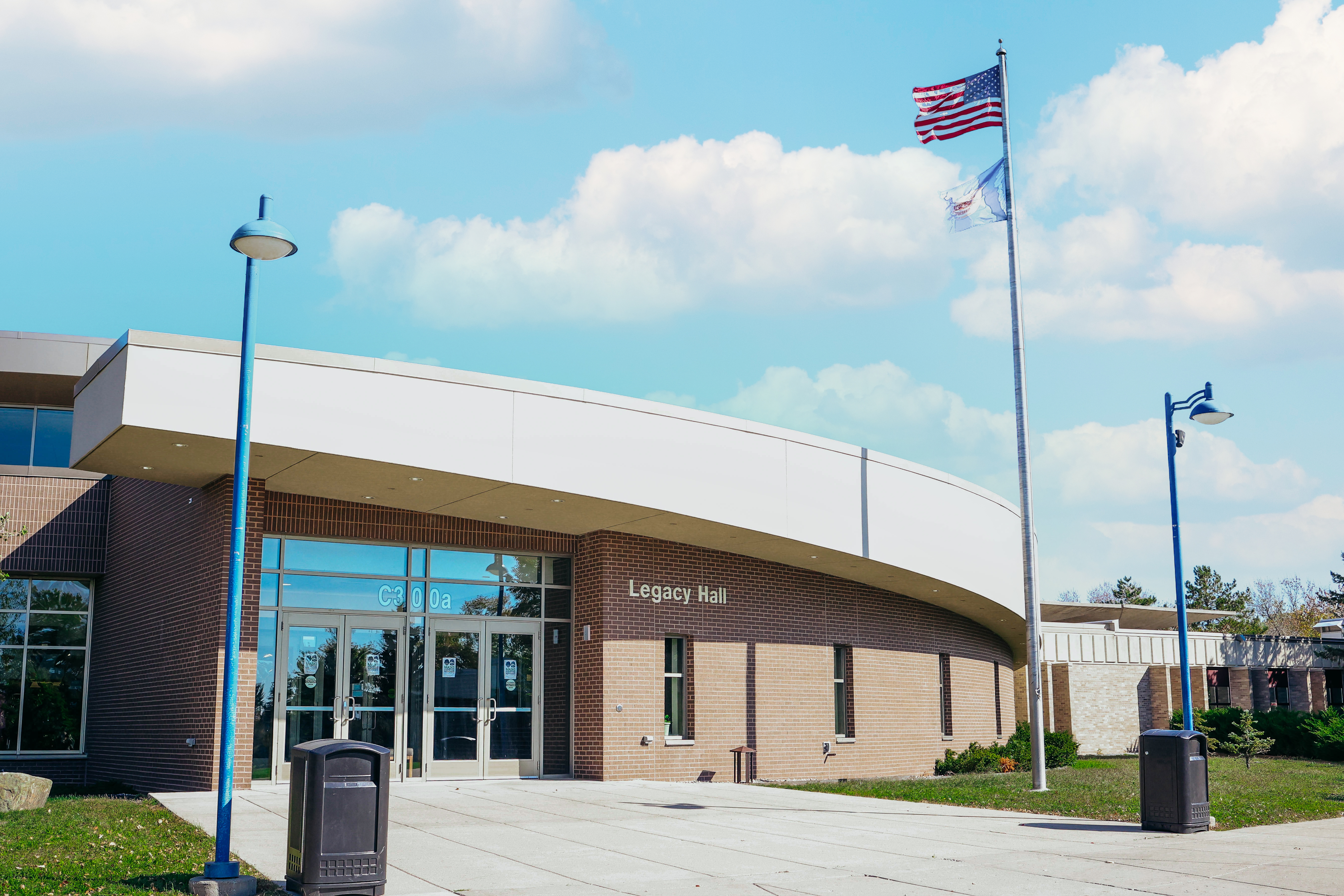
The four first provosts were: Bill Leff, who oversaw the Detroit Lakes campus; David Gabrielson, Fergus Falls; Jerome Migler, Moorhead; and Kathleen Curphy, Wadena.
Steve Guttormson, then-director of public relations at the Fergus Falls campus, told local news media, “It’s an exciting time. It’s somewhat of an adjustment for teachers and staff, but we’re looking forward to a bright future.”
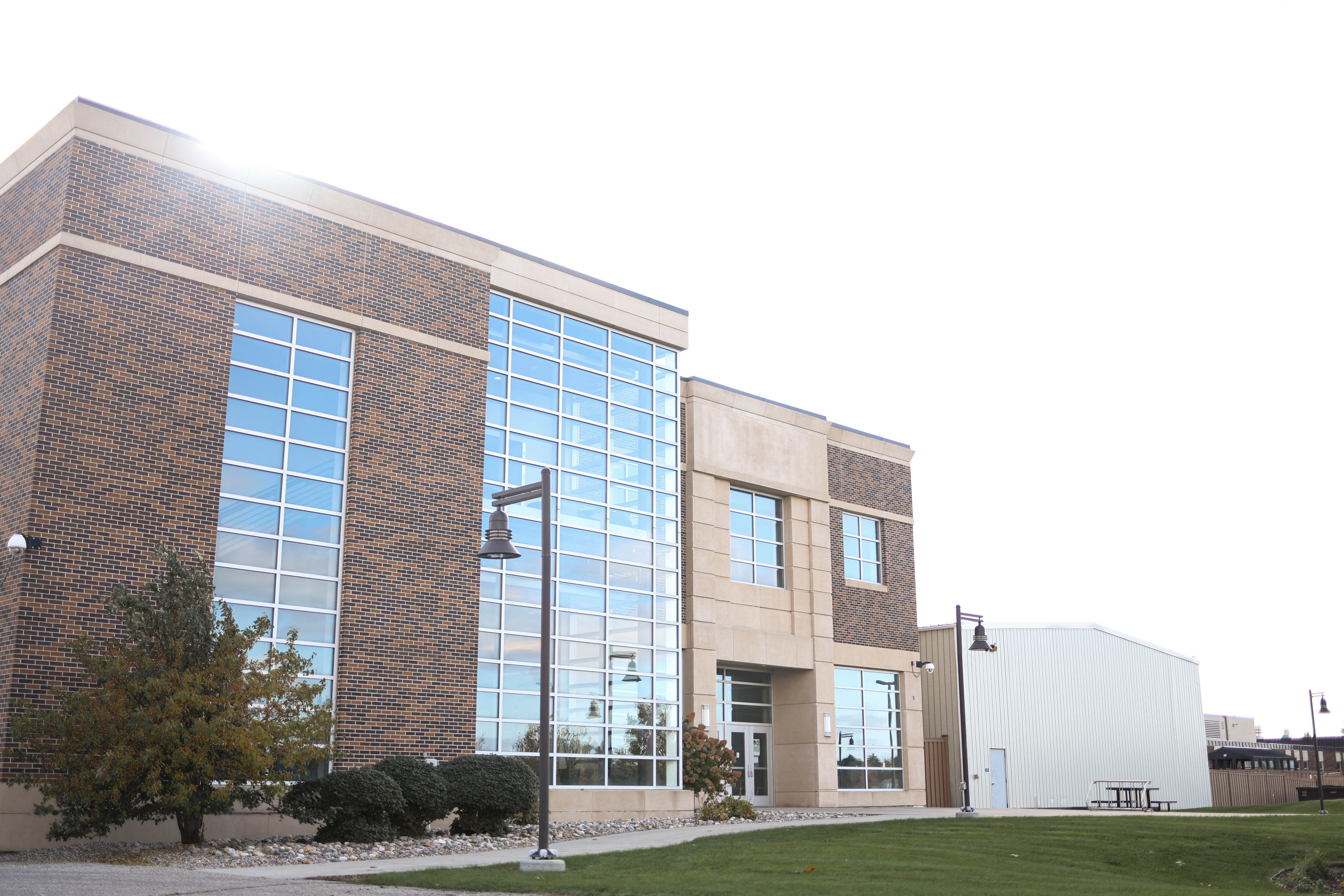
The merger came after months of discussion and planning by the Board of Trustees of the Minnesota State Colleges and Universities, which voted in approval of the plan on January 23, 2003. M State officially came into being on July 1 of that year.
The college’s name was chosen after extensive input and research by a team of graduate students from North Dakota State University.
Ken Peeders, the first president of M State, wrote a newspaper editorial around the time of the merger to share the college’s vision for “building on the historic partnerships” that had already existed between the four M State campuses and other Minnesota State system colleges and universities, and of “committing to a regional approach to curriculum development, to shared services, to distance education, to nursing, and to customized training.”
He wrote that, “This merger provides the campuses with the opportunity to craft a sound future, both for this community and for our region.”
‘The progress is amazing’
In spring 2004, nine months into the formation of M State, Peeders provided an update on how the transition was going, writing in the college’s quarterly newsletter that, “The progress is amazing… Programs are being aligned. Campus policies, procedures and processes are being merged. An update of the college’s strategic goals through an institutional planning process has begun.”
“An immediate goal,” he added, “is the deve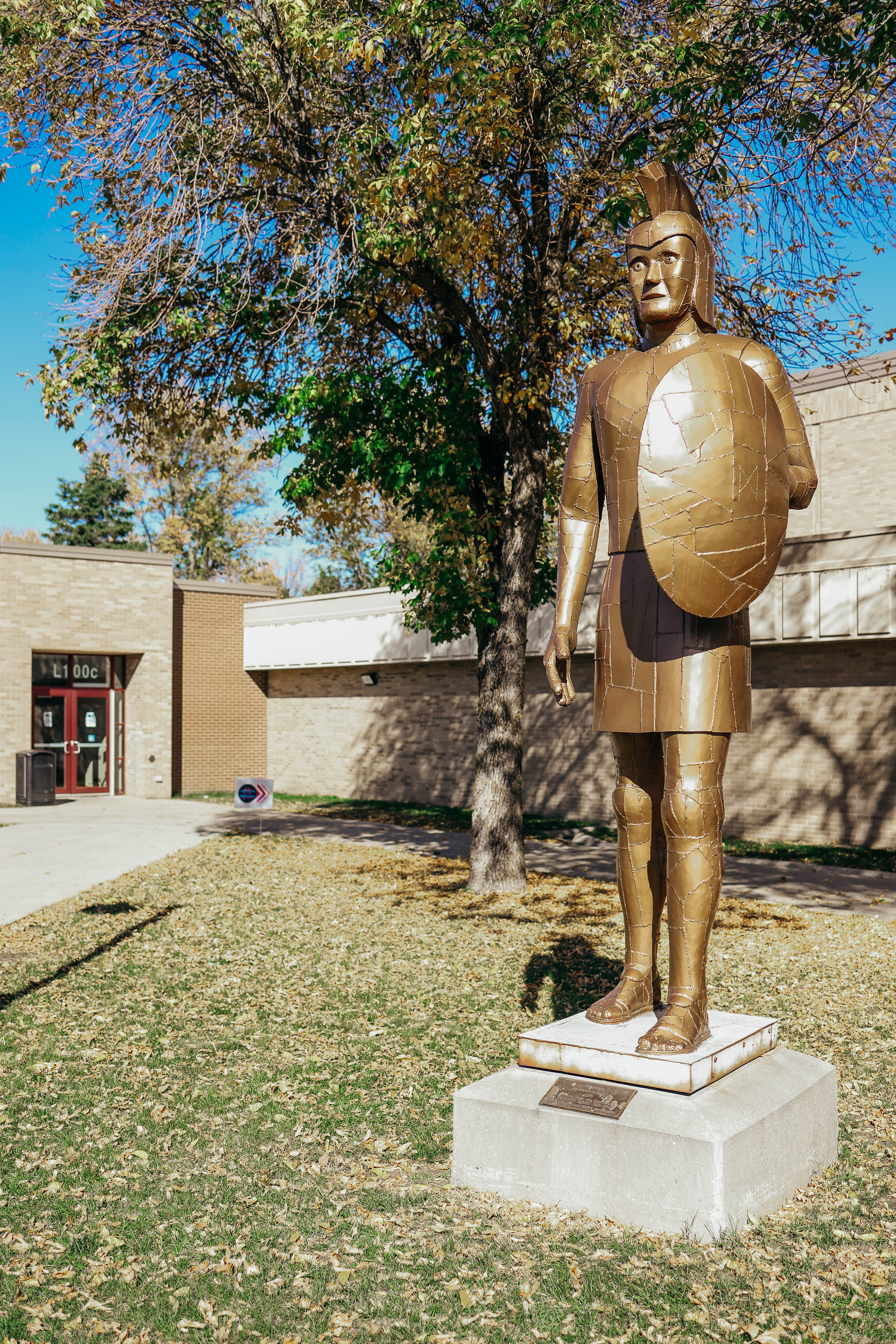 lopment of college mission and vision statements that will accurately reflect and include all four campuses. Institutional assessment and assessment of student learning are other major emphases.”
lopment of college mission and vision statements that will accurately reflect and include all four campuses. Institutional assessment and assessment of student learning are other major emphases.”
The process of merging four unique campuses was challenging in many ways, but there was optimism in the campus communities about the new learning and career opportunities the merger could lead to.
In May 2004, more than 1,200 students became the first graduates to earn M State degrees, certificates and diplomas.
A little over a year later, the college’s new president, Ann Valentine, continued her predecessor’s focus on joining the four campuses together. In the summer 2005 edition of the college newsletter, she wrote about M State being a “large and complex organization” with many ideas, voices, forces and people.
 “We want to join with each other and our communities in one response as we serve our communities together,” Valentine stated. “Our campuses in Detroit Lakes, Fergus Falls, Moorhead and Wadena are each complex and unique, but each has the common goal of service and responsiveness… As we face the future, we look ahead with energy, enthusiasm and well-founded confidence.”
“We want to join with each other and our communities in one response as we serve our communities together,” Valentine stated. “Our campuses in Detroit Lakes, Fergus Falls, Moorhead and Wadena are each complex and unique, but each has the common goal of service and responsiveness… As we face the future, we look ahead with energy, enthusiasm and well-founded confidence.”
That confident, enthusiastic energy has continued to reverberate down the halls of M State and across the college’s four campus communities over the past 20 years. M State has consistently grown and progressed in pursuit of the best possible alignment between the college’s offerings and evolving student and community needs. Today, the college offers over 70 career and liberal arts programs that cover a wide range of career fields, with courses offered on campus, online, and in mixed formats.
College leadership and operations
M State is a member of the Minnesota State system, which encompasses 26 colleges and seven universities throughout the state and is committed to ensuring access to extraordinary education for all Minnesotans. As such, M State is guided by the policies and procedures of the Minnesota State Board of Trustees, a 15-member volunteer governing body, along with localized policies and procedures developed by M State.
M State is accredited by the Higher Learning Commission, meaning the college must meet the commission’s high standards for academic rigor, faculty qualifications, student learning outcomes and more. The accreditation process happens every 10 years; M State received reaccreditation most recently in summer 2023.
The leadership team at M State includes the president, departmental vice presidents, deans and department directors. Input from faculty, staff, students and community stakeholders is routinely sought and included whenever important decisions are being made at the college.
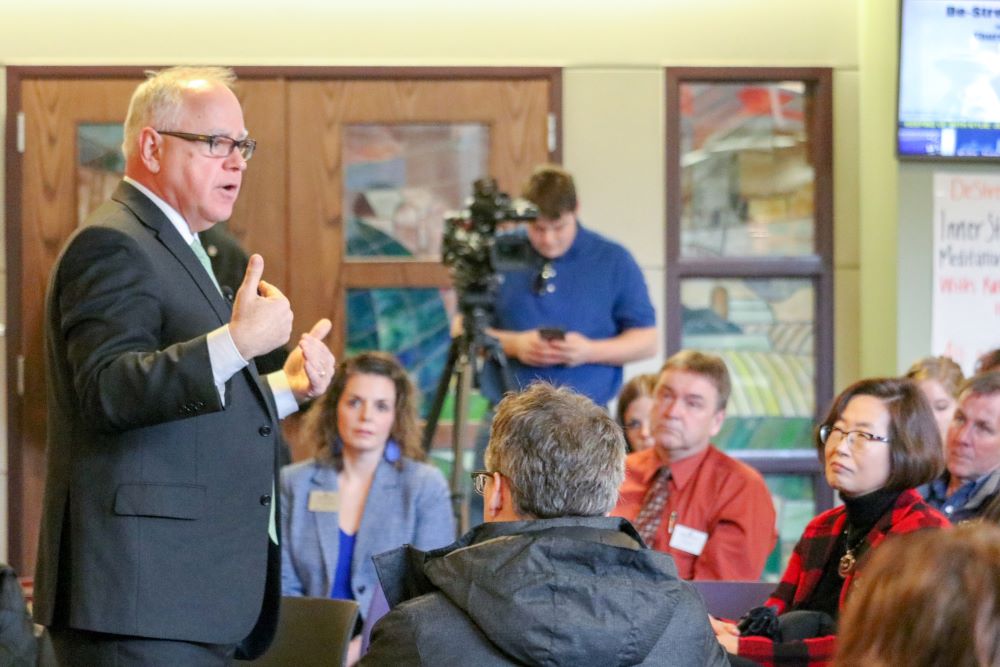 President’s Advisory Councils, made up of more than 75 representatives from business and industry, community agencies, and secondary and postsecondary education, meet biannually to help M State stay connected to regional needs and trends. Similarly, Program Advisory Committees provide external leadership at the program level, providing valuable feedback on things like curriculum development.
President’s Advisory Councils, made up of more than 75 representatives from business and industry, community agencies, and secondary and postsecondary education, meet biannually to help M State stay connected to regional needs and trends. Similarly, Program Advisory Committees provide external leadership at the program level, providing valuable feedback on things like curriculum development.
“M State would not be the institution it is today without the deep and direct involvement and contributions of many dedicated people across our region," says M State President Carrie Brimhall. "The professional expertise and insider insights shared with M State by our community and industry leaders, faculty and staff are vital to our success and, ultimately, the success of our students."